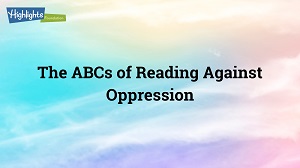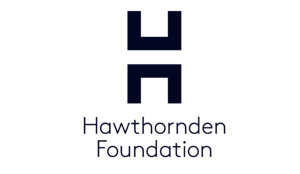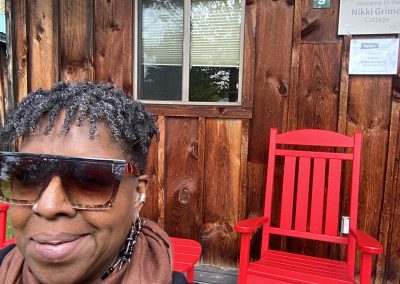The overwhelming Whiteness in American publishing is undeniable.
Just take a look at Lee and Low’s “The 2019 Diversity Baseline Survey Results” if you have doubts (https://blog.leeandlow.com/2020/01/28/2019diversitybaselinesurvey/). Along with this titlewave of Whiteness, there is also an over-representation of straight, cis, and able folks in charge of who authors books, who is represented in books, and therefore, who is seen by children. This blog post, and our work in general, isn’t about blaming individuals. Instead, we want to point to systematic issues in the ways literary gatekeeping is accomplished in children’s literature publishing today.
Organizations such as the Highlights Foundation, Lee and Low Books, We Need Diverse Books, Social Justice Books, The Cooperative Children’s Book Center, as well as individuals like Debbie Reese (https://americanindiansinchildrensliterature.blogspot.com/), and Edi Campbell (https://edicottonquilt.com/) have been working to open opportunities for marginalized people to get into the publishing business. In addition, all of these people and organizations regularly provide resources and share their knowledge through public scholarship and social media.
But, change is a verb and that means actions are required by those in places of power in order to change what is produced in publishing. If you are interested in making publishing less racist, misogynistic, homophobic, and ableist, welcome to the party! The issues are multifaceted and require lots of folks doing lots of work.
Step one: you have got to understand and believe that the United States of America is built on a mono-cultural ideal – White, middle class, male, straight, cis, able, and English speaking – and publishing reflects that ideal. In order to break out of that monocultural mindset, the folks who profit most need to do the most work.
Step two: you have to actively engage in the work. We are here to help with this step. We wanted to help folks look at the ways their identities influence when and if they recognize oppressive literary tropes and how to do the work of recognizing those tropes. Some of us call this cross cultural reading. Marginalized folks learn to consume cross culture media beginning at day 1 of our lifetimes because … please see step one. What that means is all of us grew up reading books that represented the ways White, straight, able, English speaking men saw the world.
It means Lynsey, a Black, cis, straight woman, had to read books and do the work of imagining herself, her family, her culture into the story. Laura, a White-presenting Latina lesbian, had to find ways to imagine herself, her family, her sexuality into those stories as well. And more often than not, with this avalanche of monocultural representation we came to believe that we were not worthy of being found in a book. Grace grew up absolutely devouring fairy tales, even writing her own fairy tale books as a child, and in those books the princesses were always White, never Asian. Grace had to do the work to change the way she saw herself, her family, and her culture in books, and she wrote her way into representation.
How do literary gatekeepers learn to read cross-culturally?
How do literary gatekeepers including publishers, editors, teachers, and librarians, who are vastly White, cis and able, learn to read cross-culturally? Here are a few active changes you can begin doing today that can impact your role in children’s literature by reflecting on your one reading life.
A: Audit Your Own Reading and Book Purchasing Habits.
Think back to all that you’ve read and all of the books you’ve purchased in the past year. Open your library borrowing history, and your book buying history. Look at your to be read pile, and the stacks of books that have been read and you just can’t find a home for them. Look at your favorites for the last year … not just the books that got the awards, but the books you picked up and thought, “yes, this book is something I have in my brain.” Seriously, make piles, make a spreadsheet, keep track.
Do the authors you read represent the predominant monocultural ideal? What about the characters? Whose voices are you lifting by the books you purchase and share? What about authors? How about those illustrators? Who is getting more shelf space, pile space, brain space?
B: Learn to Look for Harmful Stereotypes in Books You Read.
This one is a lot of work and most of it is unpleasant to do because you will need to admit to knowing some harmful, biased, oppressive stereotypes wandering around in your mind. You will also have to admit to harmful, biased, oppressive stereotypes that are simply part of our racist, classist, sexist, homophobic, ableist, English centric idealized society (again, see step one).
Does the book pass the Bechdel test (https://bechdeltest.com/) or one of the variants? Which characters represent the most marginalized communities? What are the harmful stereotypes and tropes that you know about those communities? Does the representation – physical, verbal, historical – reinforce the oppressive stereotype?
C: Learn History.
In order to do this work, you must commit to learning history and choosing what you read carefully. This includes questioning the history that you learned and then studying to find answers and to learn the stories and facts of history that you are unaware of. Studying includes being intentional about the history you read and studying whether the authors have the authority to write the history you are reading. We must always ask ourselves, Whose story is being told? Whose stories are missing? How is this history showing up in the present?
It is our responsibility as literary gatekeepers to begin by paying close attention to our own reading lives and the power we have in our roles around children’s literature. If we are committed to changing the publishing world, we must each commit to change our entire reading lives and then bring that to our professional roles.






